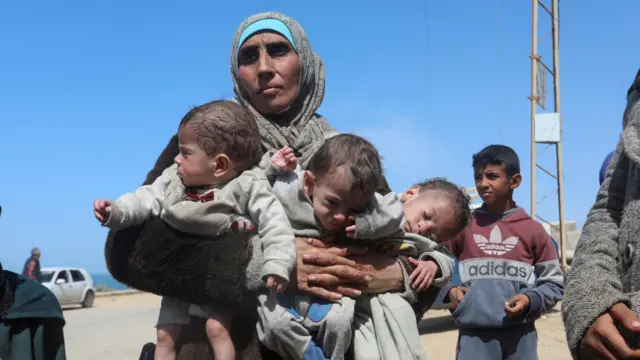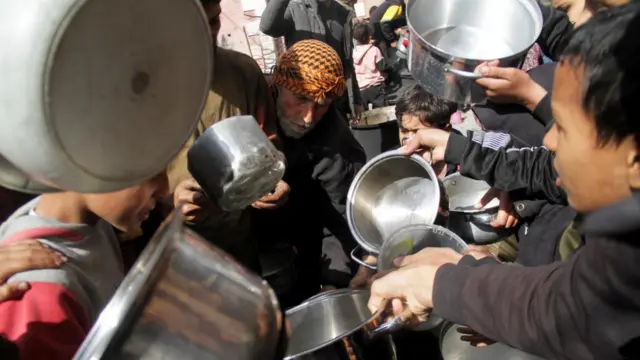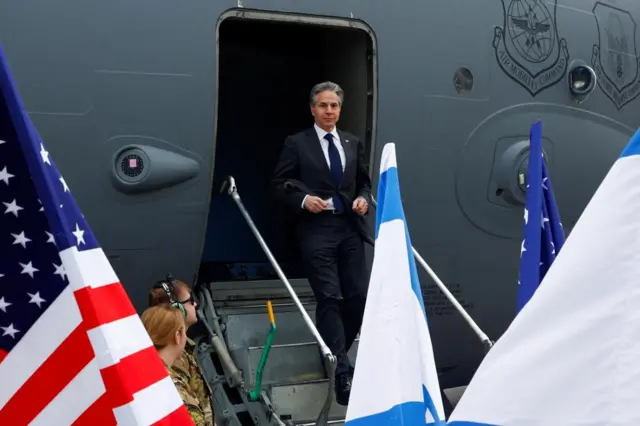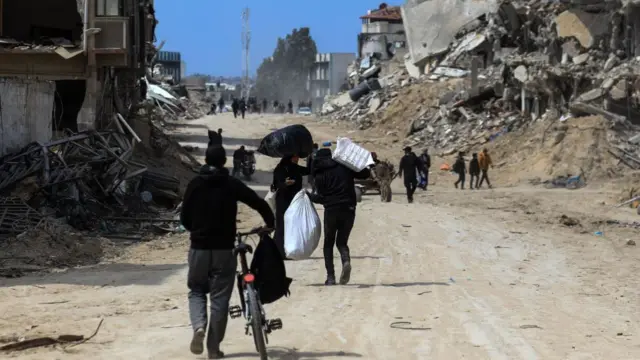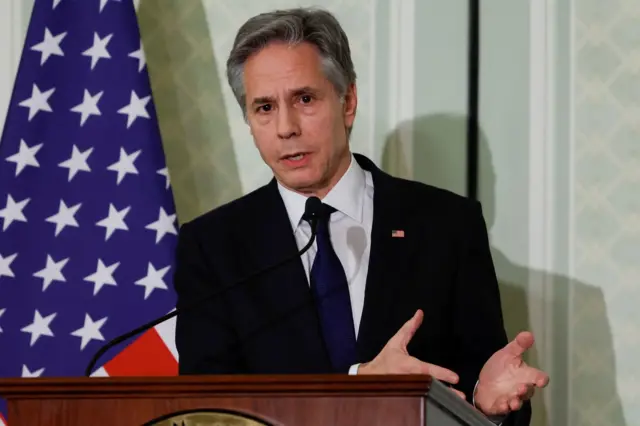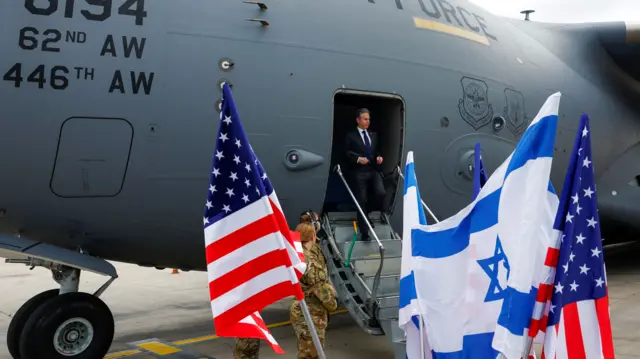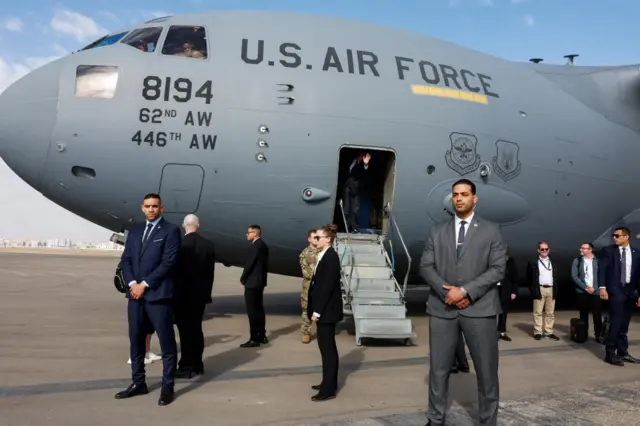Gaza on the agenda in Australia-UK ministerial talkspublished at 09:43 GMT 22 March 2024
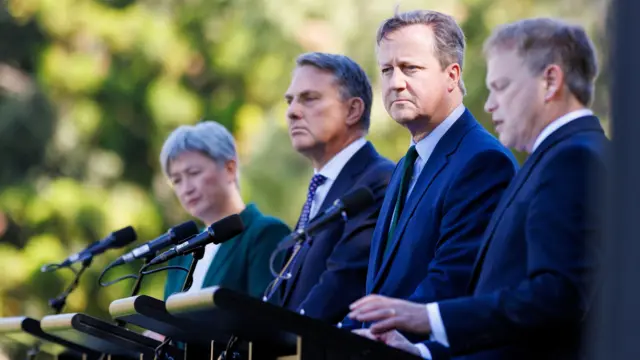 Image source, Reuters
Image source, ReutersAs Antony Blinken lands in Israel, the UK Foreign Secretary Lord Cameron is visiting Australia for ministerial talks, but raising concerns about Gaza is also on the agenda.
Cameron and Defence Secretary Grant Shapps met their Australian counterparts, Penny Wong and Richard Marles, in Adelaide.
In a joint statement, they "expressed the urgency of an immediate cessation of fighting in Gaza to allow aid to flow and hostages to be released as a crucial step toward a permanent, sustainable ceasefire".
The statement also called on Israel to allow "immediate, safe, unimpeded and increased humanitarian relief" to reach Gaza.
"All parties must act within international humanitarian law."

